A force for good
Sister Aileen Gleason founded Hospitality House Refugee Ministry
Advertisement
Read this article for free:
or
Already have an account? Log in here »
To continue reading, please subscribe:
Monthly Digital Subscription
$1 per week for 24 weeks*
- Enjoy unlimited reading on winnipegfreepress.com
- Read the E-Edition, our digital replica newspaper
- Access News Break, our award-winning app
- Play interactive puzzles
*Billed as $4 plus GST every four weeks. Offer only available to new and qualified returning subscribers. Cancel any time.
Read unlimited articles for free today:
or
Already have an account? Log in here »
Hey there, time traveller!
This article was published 27/04/2019 (2138 days ago), so information in it may no longer be current.
She was a humanitarian force to be reckoned with, helping thousands find refuge in Canada.
Generations of Winnipeggers with roots in the Horn of Africa were impacted by Sister Aileen Gleason, who died April 4 at the age of 94.
The street-wise nun born in Watson, Sask., founded Hospitality House Refugee Ministry — one of Canada’s largest private sponsors of refugees.
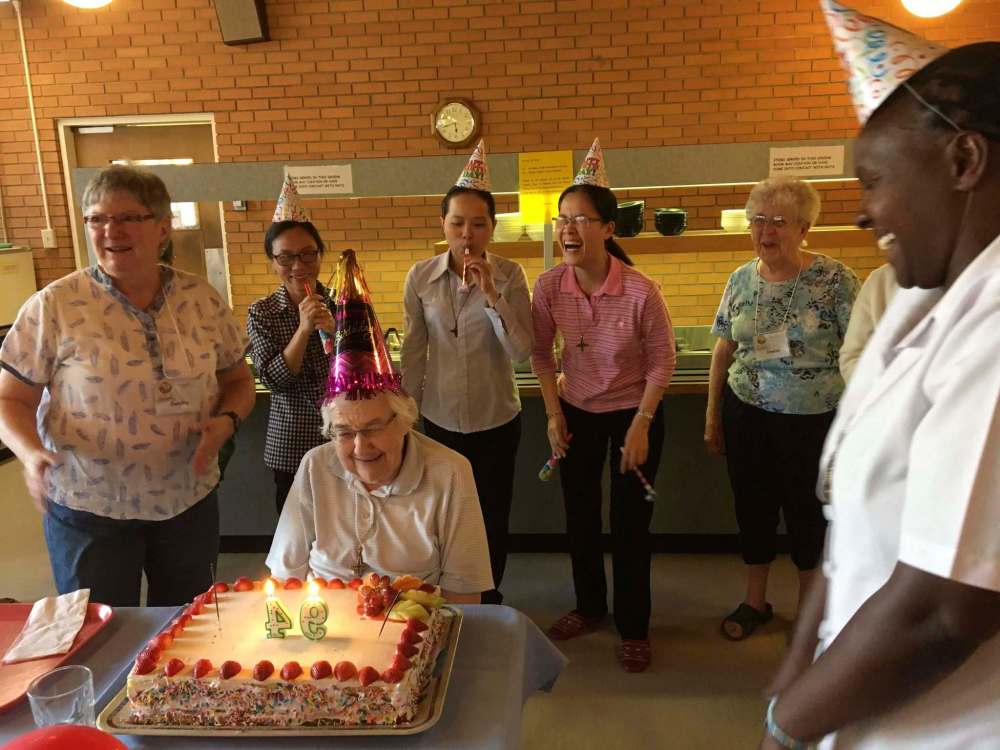
“Sister Aileen is the reason we came to Canada,” said Daniel Awshek, a pallbearer at her funeral. “I’m one of the last people she sponsored.”
He met Gleason in the streets of Nairobi in 2004, after they’d both travelled far from home on paths they couldn’t have foreseen.
In 1943, Gleason felt the call to religious life and entered the novitiate of the Sisters of Our Lady of the Missions at Sacred Heart College in Regina. She made her perpetual vows in 1952.
Her parents, John and Josephine, were both teachers and Gleason, the second-oldest of six children, knew the value of education. She became a teacher, a principal and a life-long learner.
After 20 years in elementary and secondary school classrooms in Saskatoon, Regina, Brandon and supervising as a principal in Fort Frances, Ont., Gleason took a sabbatical in 1973.
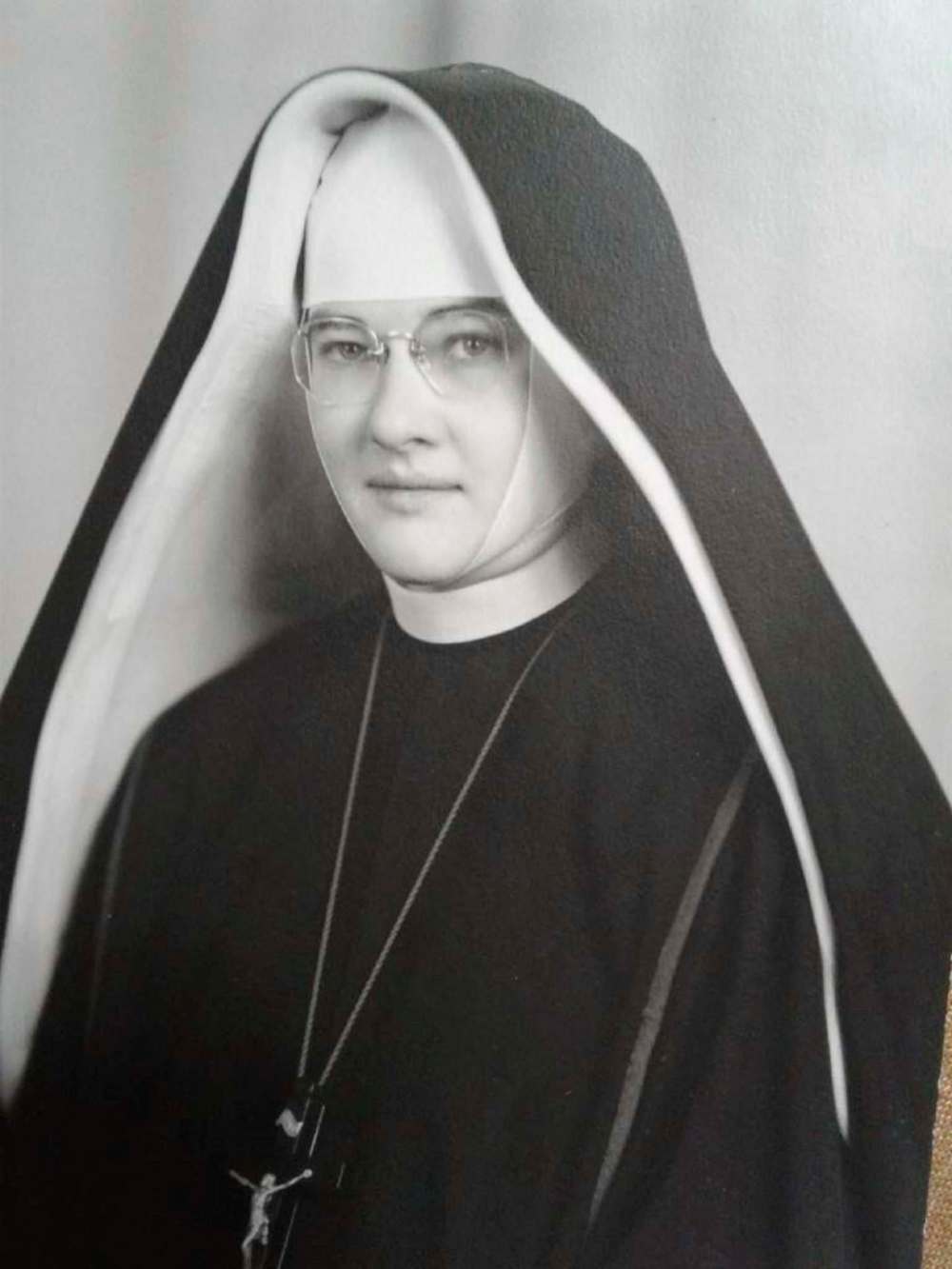
After earning a theology diploma, she went to work for her religious congregation in Rome, where she met refugees from Ethiopia. They were mostly young men who’d fled violence in their country. Their lives were on hold, with no place to call home, so Gleason went to work looking for friends and family in Canada to sponsor them.
When she returned to Canada in 1986, the Sisters of Our Lady of the Missions asked her to co-ordinate the community’s work with refugees and develop a comprehensive program.
She started with a recipe-card filing system and a hunger to help. She worked on refugee applications and replied to a growing number of letters, then e-mails, from people asking for help. Gleason raised funds and worked with other organizations to raise awareness and support.
By 1991, with 1,000 refugee sponsorships in the works, Gleason began planning for a home to receive refugees. In 1992, the Anglican Diocese of Rupert’s Land offered the use of a parish house in Winnipeg. It was named Hospitality House, reflecting its mission to welcome and provide a safe haven to people who’ve experienced little of either.
In 1998, Gleason was recognized by Citizenship and Immigration Canada and granted the Citation for Citizenship for her outstanding work on behalf of refugees.
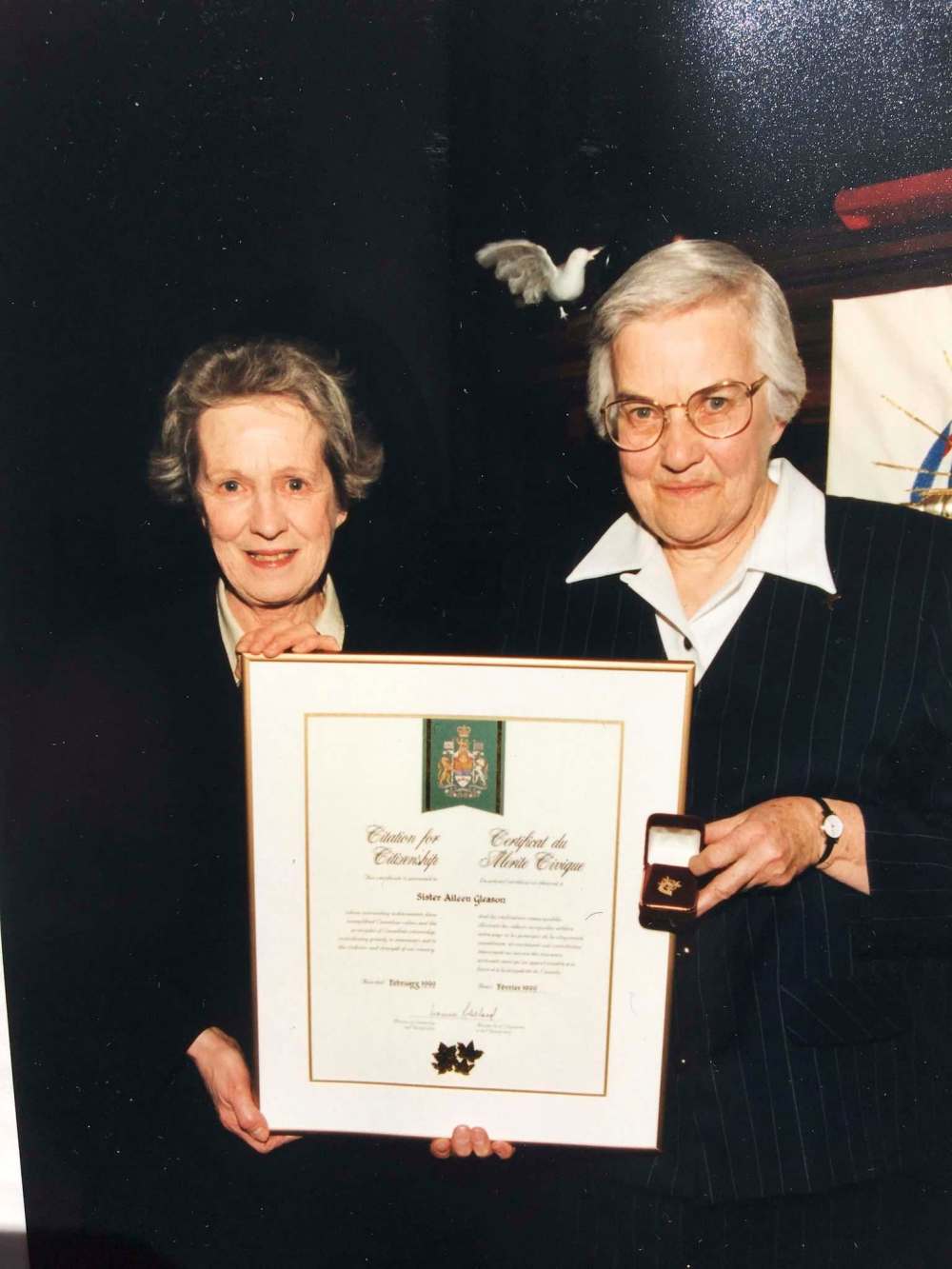
In 2002, at 78, Gleason retired as Hospitality House’s refugee co-ordinator and went to Nairobi in an effort to expedite applications of refugees stuck in camps, waiting to come to Canada.
She wound up staying in Kenya until 2007, and changed many lives.
“I was in a very difficult situation,” Awshek said, recalling his arrival in Nairobi. He’d just escaped dictatorship and oppression in Eritrea, before crossing into Kenya from Ethiopia.
“I had no safety, there was no hope on the horizon and no way I could go back to my country,” he said. “I had no status in Kenya,” which meant he couldn’t legally work and had to take “under-the-table” jobs with horrible conditions and poor pay.
“I was looking for anyone who could help me to resettle in a place where I could work.”
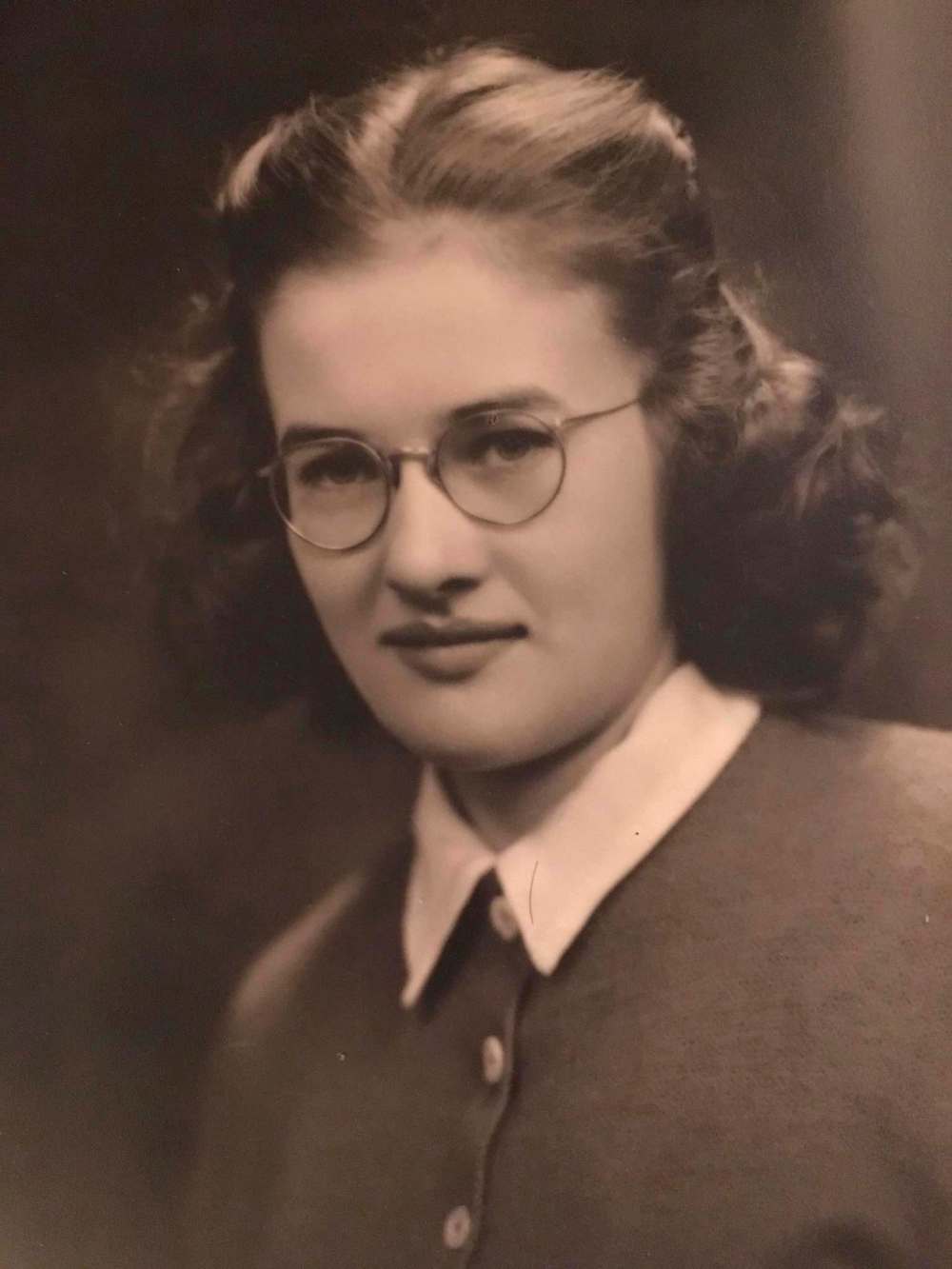
He found Gleason.
“She was elderly and very kind, loving and smart,” Awshek said. “When I spoke to her about my story she was very moved.”
She was sympathetic and pragmatic, warning him Nairobi, home to many refugees, has many residents eager to exploit them.
“She gave me a lot of advice on how to stay safe,” said Awshek. “She gave me tips on how to not be taken advantage of by different people who seem to be helpful but take all your money, and how to be safe from the human traffickers.”
Gleason helped him navigate the bureaucracy so he could prove he was a bona fide refugee and eligible for sponsorship in Canada.
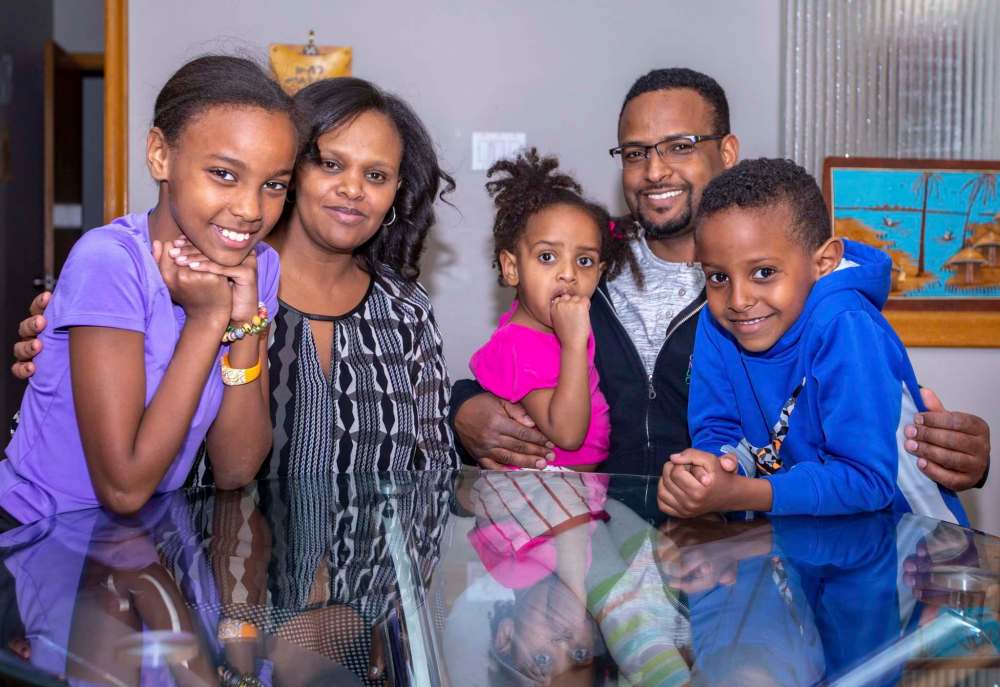
“She promised me she would do everything she could to help,” Awshek said, his voice breaking with emotion. “Sure enough, she followed through.”
In 2007, he and his wife — pregnant with their first child — arrived in Winnipeg.
“When we came here, she was at the airport to welcome us… She helped me set short-term goals and long-term goals and plan how to pursue my profession,” said Awshek, who works as a nurse.
He and his wife have four children born in Winnipeg. They stayed close to Gleason, visiting her when she lived at St. Benedict’s Place through to her final days at Holy Family Home.
“They called her ‘our grandma in Canada.’ They were very sad at her passing,” said Awshek. “She was so good to us and so many people. We’re here in a safe country with all our rights, our children have a future and we’ve been able to help a lot of our family and our community.”
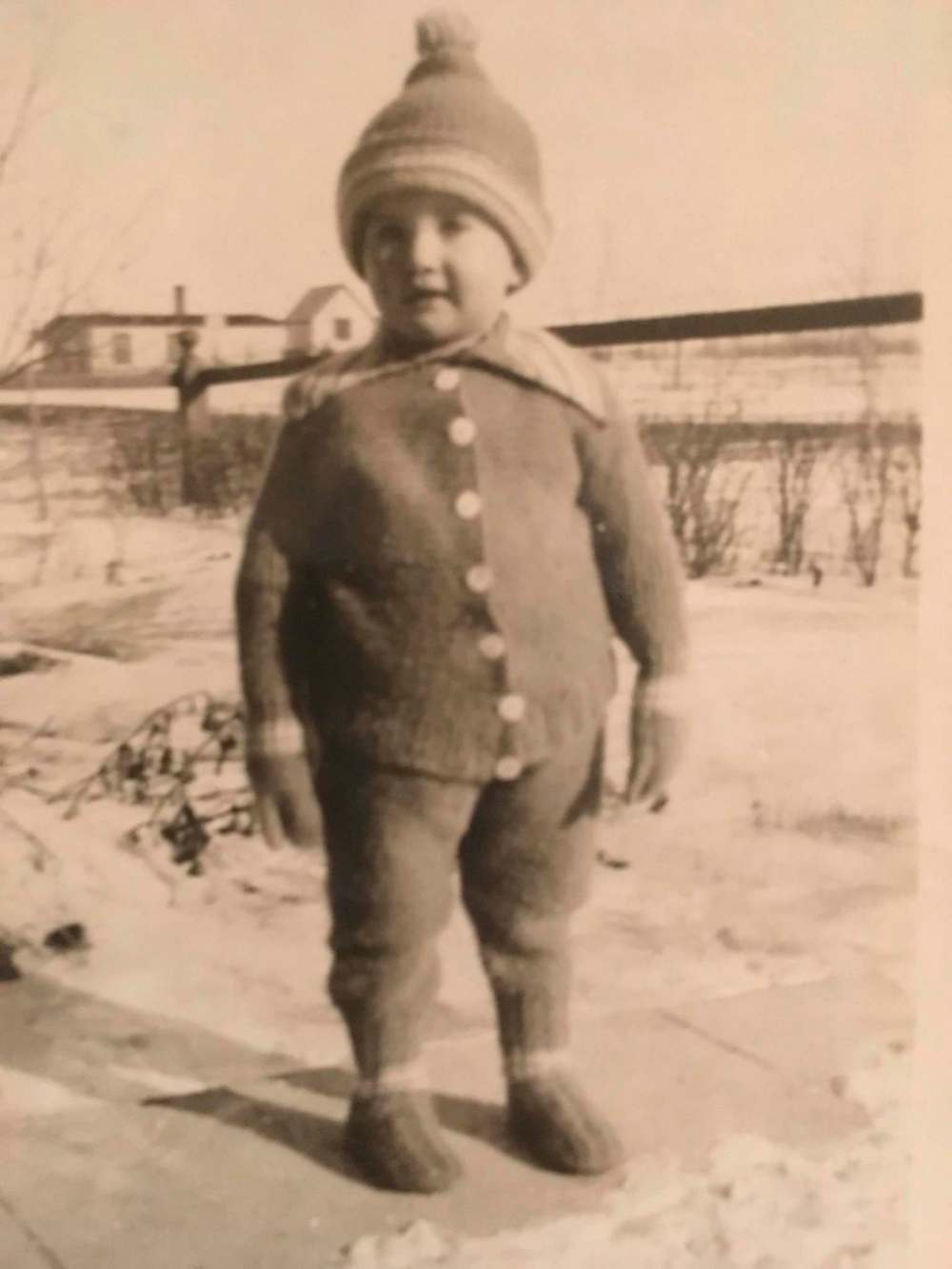
Awshek now serves as a board member and treasurer of Hospitality House Refugee Ministry. He estimated thousands of refugees and their descendants have Gleason to thank for being in Canada.
“She has a legacy of touching thousands of people who were influenced by her life,” he said. “Hopefully, we can hold on to her legacy and impact the world in a positive way.”
On June 4, during a ceremony at 2 p.m., Gleason’s ashes will be interred at Assumption Roman Catholic Cemetery (3990 Portage Ave.).
carol.sanders@freepress.mb.ca
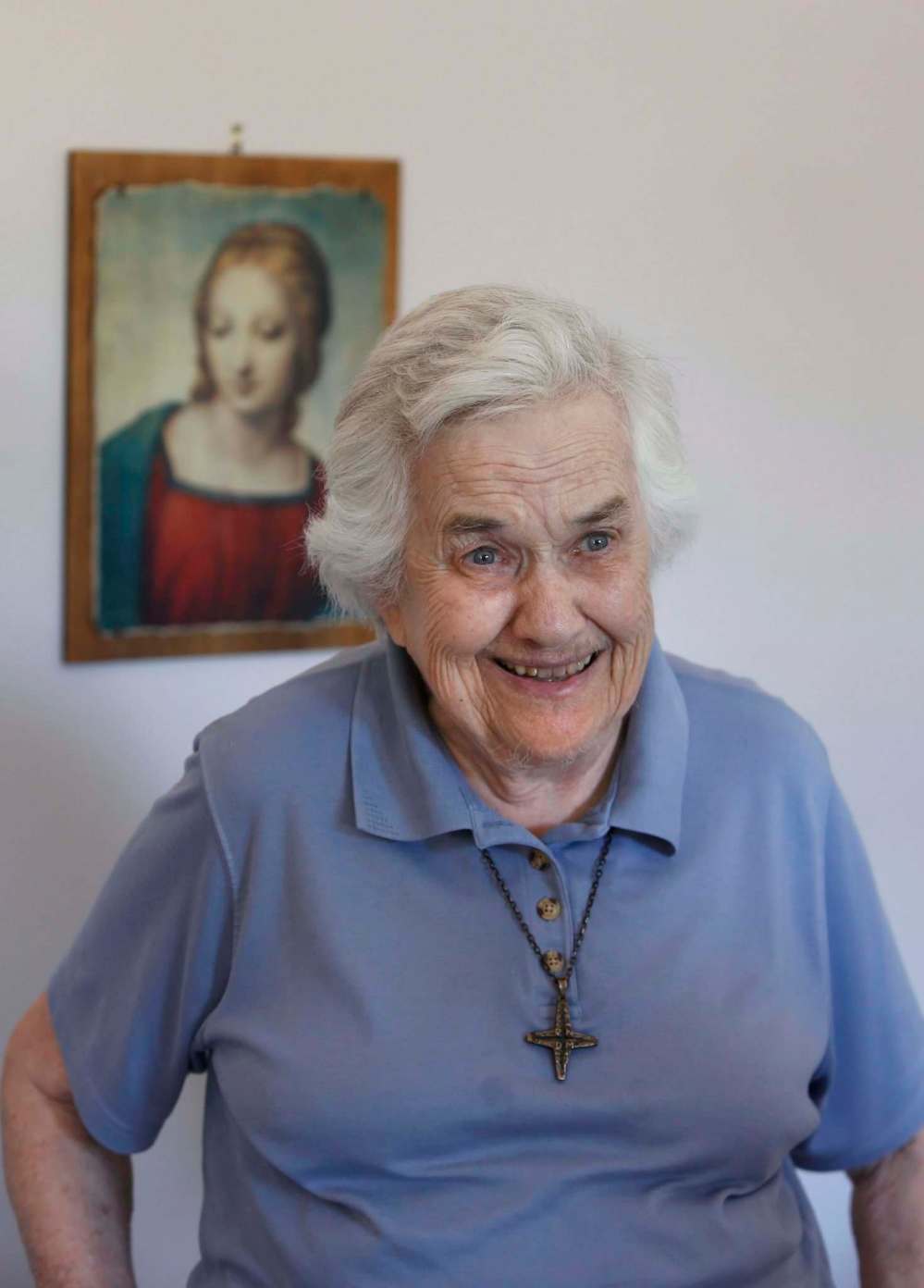

Carol Sanders
Legislature reporter
After 20 years of reporting on the growing diversity of people calling Manitoba home, Carol moved to the legislature bureau in early 2020.
Our newsroom depends on a growing audience of readers to power our journalism. If you are not a paid reader, please consider becoming a subscriber.
Our newsroom depends on its audience of readers to power our journalism. Thank you for your support.
History
Updated on Saturday, April 27, 2019 2:08 PM CDT: final

